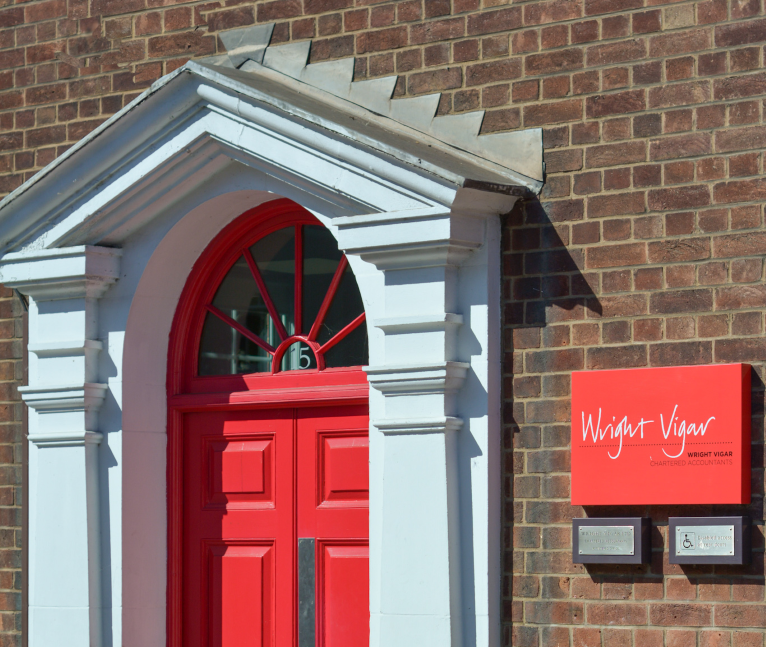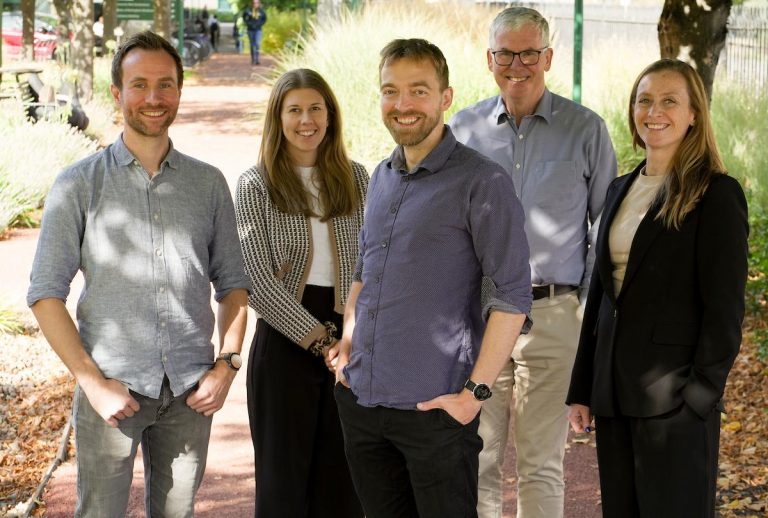
Bold new UK headquarters for global digital services provider

Wright Vigar achieves Payroll Assurance accreditation from CIPP
Rolls-Royce outlines plans for new Derby facility
Rolls-Royce is planning a new manufacturing services building at its Sinfin A site in Derby as part of ongoing efforts to modernise its infrastructure.
The proposed two-storey structure would cover approximately 3,000 square metres and include manufacturing areas, offices, and welfare facilities such as a canteen and toilets. The design features a sloped roof up to 12.6 metres high, fitted with solar panels and rooflights to improve energy efficiency.
According to documents submitted to Derby City Council, the project aims to replace older infrastructure and improve operational performance across the site. Construction is expected to take around ten months, with no changes proposed to existing site access.
Rolls-Royce has asked the council to determine whether an environmental impact assessment is necessary before submitting a full planning application. A decision on that request is anticipated by early November.
The development would further strengthen Rolls-Royce’s long-term investment in its Derby operations, where it continues to upgrade facilities to meet modern health, safety, and environmental standards.
Atos invests £10m to boost East Midlands tech growth
Atos is strengthening its presence in the East Midlands with the launch of a new Digital Agentic Centre in Nottingham, part of a £10 million investment to advance the UK’s digital infrastructure.
The Nottingham facility will drive innovation in artificial intelligence and automation, developing technologies that enhance efficiency, reliability and productivity for public and private sector organisations. It forms a key part of Atos’ strategy to anchor more high-value digital work in the region, positioning the East Midlands as a growing hub for advanced tech capability.
Alongside the new centre, Atos will extend its graduate and apprenticeship programmes to create around 50 new roles by 2026. These will support the development of local expertise in AI, cybersecurity, cloud computing and data analytics, helping build a stronger regional workforce equipped for the next wave of digital transformation.
Michael Herron, Head of Atos UK&I, said, “Our new sovereign offerings will ensure our clients have a future-ready end-to-end IT estate under their control so that they can easily adapt to any regulatory or geopolitical changes. For businesses in the public, defence and critical national infrastructure sectors, the need for sovereign AI capabilities is mission-critical, and we’re proud to be working with them to make safe and reliable digital and AI development possible.
“As part of this, we are reimagining what an IT career pathway looks like in an age where humans and AI co-exist together. Our new early-career roles will give young people in the UK a multi-faceted career in the digital arena. Sovereignty, for us, includes nurturing the next generation of tech talent in the UK&I.”
Atos’ investment aligns with its wider national strategy to strengthen regional resilience, advance sovereign digital capabilities and build a sustainable pipeline of technology talent across the UK.
Heineken invests in Northamptonshire pub as part of wider UK upgrade
The Five Bells in Bugbrooke, Northamptonshire, is undergoing a major refurbishment following a £400,000 investment by Heineken-owned Star Pubs & Bars and local operators Bups Chaggar and Denis Gill. The redevelopment is expected to create 15 jobs and marks one of several regional projects under Heineken’s £40 million national pub estate investment for 2025.
Of the total, £3.1 million has been allocated to venues across the East Midlands. The Five Bells, closed since mid-2023, is scheduled to reopen in early December.
The project includes a full interior and exterior overhaul, with redesigned dining and bar areas, upgraded accessibility and facilities, and a new kitchen layout aimed at expanding the menu options. The building will feature new furnishings, lighting, and décor, while the exterior will be repainted and fitted with new signage and outdoor seating areas.
The pub will offer a varied food menu alongside traditional drinks, operating daily with extended food service hours through the week. The refurbishment aligns with Heineken’s broader strategy to modernise its UK pub portfolio and strengthen partnerships with local operators.
BGF prepares £500m institutional fundraise to expand UK investment base
BGF is preparing for its first external capital raise, seeking up to £500 million from institutional investors to broaden its funding beyond its founding banks—Barclays, HSBC, Lloyds, and NatWest. The move marks a strategic shift as the firm aims to diversify its investor base and strengthen its capacity to finance small and medium-sized enterprises across the UK and Ireland.
The planned raise, expected in 2026, follows BGF’s commitment to invest more than £3 billion over the next five years. Investment bank Lazard has been appointed to advise on the process. The new funds would allow BGF to channel additional capital into growing companies, aligning with government efforts to attract long-term institutional investment through initiatives such as the Mansion House Accord.
Since its formation in 2011, BGF has invested over £4.7 billion in more than 600 businesses, creating around 27,000 jobs and contributing £7.1 billion in revenue growth. The firm reports a 21.4% internal rate of return since 2016, highlighting its performance in backing growth-stage companies through minority stakes.
BGF’s next phase signals an evolution in the UK’s growth capital landscape, as the firm adapts to increasing competition from private equity, family offices, and debt funds while maintaining its regional focus outside London and the South East. Recent exits include Brisant Secure, Fulfilmentcrowd, and Braidwater.
Latest corporate insolvency figures highlight ‘stable stress’ across the region
Major student development hits key milestone in Beeston
East Midlands innovation firms benefit from £80 million investment fund
The Midlands Engine Investment Fund II has provided a major boost to the East Midlands’ business community, helping firms across manufacturing, medical technology and construction accelerate growth since its launch in February 2024.
Administered by the British Business Bank, the fund has deployed over £50 million in direct investment and attracted an additional £30 million in private sector backing. The result is more than 180 smaller businesses gaining access to vital finance across the Midlands, with a strong showing from East Midlands innovators.
Among the region’s recipients, University of Nottingham spin-out Forge Genetics secured £2 million to advance its gene editing research. Sleaford Building Services received £750,000 to fund expansion and increase capacity, while medical packaging specialist Shawpak in Derbyshire obtained £500,000 to upgrade its facilities and meet growing demand.
The investment has reinforced the East Midlands’ reputation for research-led innovation and agile manufacturing. Many of the businesses supported are developing technologies and processes with national and global potential.
Keira Shepperson, Senior Investment Director at the British Business Bank, said, “The East Midlands has a strong track record in innovation, as shown by the firms the Fund has been able to invest in. From cutting edge medical technologies to evolving manufacturing and construction firms, the region is pushing through and bringing new ways of working to life. The Midlands Engine Investment Fund II is here to back that sense of ambition and entrepreneurial spirit. We look forward to continuing to support these firms and more as they gear up for 2026.”
Part of the Bank’s £1.6 billion Nations and Regions Investment Funds, the Midlands Engine Investment Fund II provides loans and equity investment ranging from £25,000 to £5 million through accredited regional fund managers. The initiative is designed to diversify finance options and strengthen the East Midlands’ role in the UK’s innovation economy.












